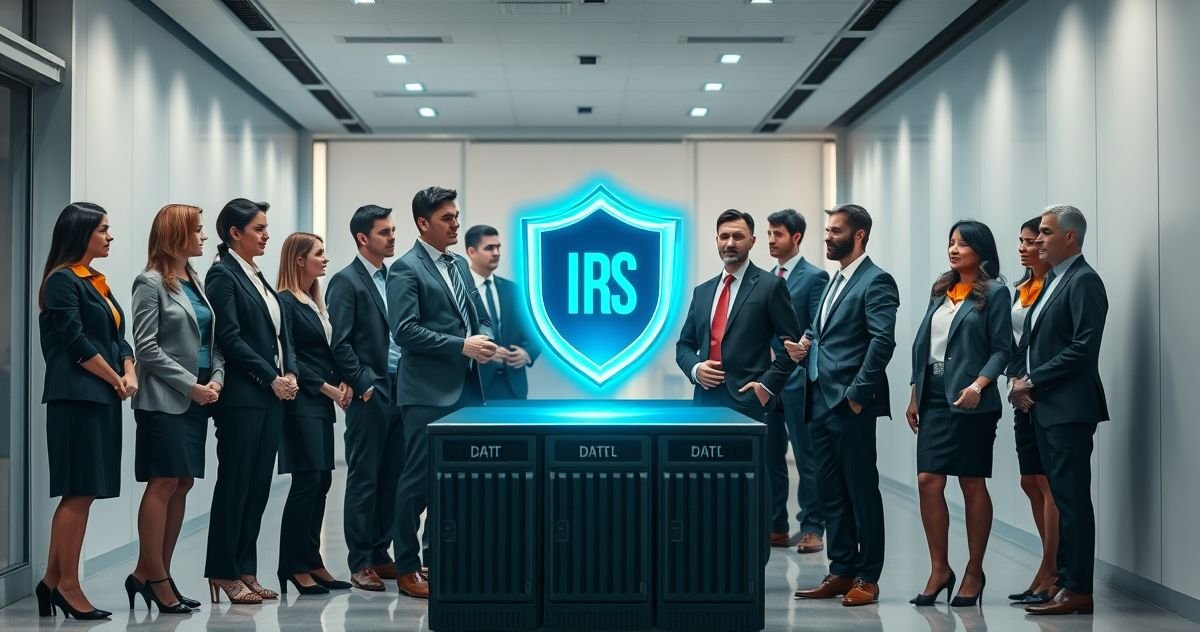The Internal Revenue Service (IRS) manages an extensive collection of sensitive personal and financial data, including Social Security numbers, income details, and banking information, gathered from tax returns and related documents. Protecting this data is vital to uphold federal privacy laws and maintain public confidence in the tax system. The IRS operates under key legal frameworks like the Privacy Act of 1974 and the Internal Revenue Code, which restrict how taxpayer information is collected, used, and shared.
How the IRS Protects Taxpayer Data
-
Access Controls and Need-to-Know Basis
IRS employees are granted access only to the data necessary for their job functions. This minimizes the risk of accidental or malicious data misuse by limiting internal exposure. -
Advanced Encryption Methods
Tax return data transmitted electronically or stored digitally is encrypted using strong, industry-standard protocols. Encryption ensures the data remains unreadable to unauthorized individuals during transmission and storage. -
Robust Cybersecurity Infrastructure
The IRS invests heavily in cybersecurity technologies, including firewalls, intrusion detection systems, and continuous network monitoring, to defend against hacking attempts and malware threats. -
Comprehensive Staff Training
IRS employees participate in regular training sessions on data protection, privacy policies, and recognizing cyber threats such as phishing schemes, fostering a culture of vigilance. -
Third-Party Compliance Oversight
When taxpayer data is shared with contractors or state tax agencies, the IRS requires strict compliance agreements and conducts audits to ensure these entities follow mandated privacy protocols.
Key Initiatives to Enhance Data Privacy
-
Identity Protection PIN (IP PIN): To reduce identity theft risk, the IRS issues a unique six-digit PIN to eligible taxpayers. Filers must enter this PIN to validate their identity and prevent fraudulent tax returns.
-
Data Breach Response: The IRS has established procedures for promptly notifying affected individuals in case of data breaches. Services such as free credit monitoring and identity theft protection are provided to mitigate potential damage.
Who Is Affected?
All taxpayers who file returns with the IRS have their data collected and stored. Those identified as at higher risk of identity theft, such as past victims of tax fraud, may qualify for additional safeguards like the IP PIN program.
Tips for Taxpayers to Protect Their Data
- File taxes electronically through official IRS-approved software that encrypts data.
- Be cautious of phishing emails or phone calls claiming to be from the IRS; the agency rarely initiates contact via these methods.
- Safeguard your Social Security number, tax returns, and online IRS account credentials.
- Enroll in the IRS Identity Protection PIN program if eligible.
Common Misconceptions
-
“IRS doesn’t protect my data well.” While no system is infallible, the IRS deploys extensive security measures and operates under strict legal privacy protections.
-
“Paper returns are safer than e-filing.” Paper returns are secure after receipt but take longer to process. Electronic filing uses encrypted systems designed for security during transmission and storage.
-
“The IRS sells taxpayer information.” The IRS is expressly prohibited by law from selling taxpayer data. Data sharing is limited to legal tax administration and enforcement.
Frequently Asked Questions
Q: Can the IRS share my tax return information with other government agencies?
A: Yes, but only under strict legal authority and for official purposes such as tax enforcement, while maintaining confidentiality.
Q: What should I do if I suspect my tax data is compromised?
A: Contact the IRS Identity Protection Specialized Unit immediately and consider credit monitoring services.
Q: How long does the IRS retain taxpayer data?
A: The IRS keeps tax records for at least seven years, and sometimes longer if audits or investigations are ongoing.
Summary Table of IRS Data Privacy Practices
| Data Privacy Practice | Description | Benefit |
|---|---|---|
| Access Controls | Limits employee data access based on role | Minimizes insider misuse |
| Encryption | Protects data during transmission and storage | Safeguards against external breaches |
| Cybersecurity Tools | Firewalls and continuous monitoring | Detects and prevents hacking attempts |
| Employee Training | Regular education on privacy and security | Increases awareness and reduces errors |
| Identity Protection PIN | Unique code to thwart fraudulent filings | Prevents identity theft |
| Breach Response | Timely notifications and protection services | Minimizes impact of data breaches |
For more information on taxpayer rights and data privacy, you can visit the IRS Privacy page at IRS.gov. You may also find our related article on Your Rights During a Tax Audit useful for understanding your protections under IRS procedures.



